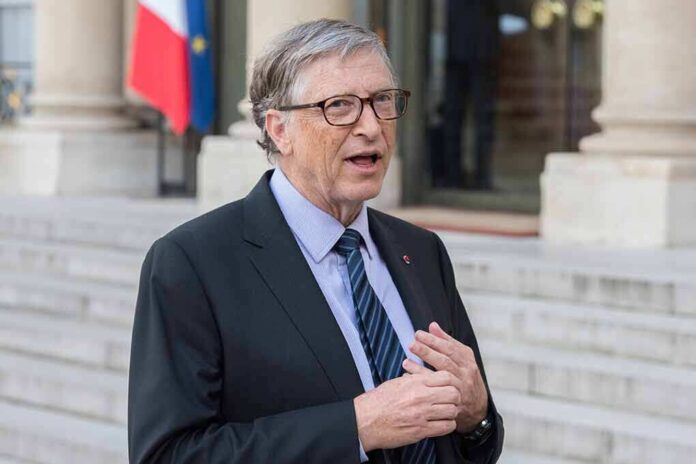
Bill Gates’ recent comments at COP30 raise alarms about global climate strategies as he candidly exposes the inefficacies of current policies, challenging both government and industry to face harsh realities.
Story Highlights
- Bill Gates criticizes current climate strategies at COP30, raising concerns among global leaders.
- His comments highlight the need for more radical actions and innovation in climate policy.
- The timing of Gates’ statements coincides with heightened scrutiny of global climate negotiations.
- The debate reflects broader tensions between technological optimism and political inertia.
Bill Gates Challenges the Status Quo at COP30
During the COP30 summit in Brazil, Bill Gates made headlines by addressing the inadequacies of current global climate strategies. As a prominent voice in climate advocacy, Gates candidly critiqued the slow pace of progress, calling for more radical action and innovation. His remarks have sparked a renewed debate among international leaders, emphasizing the urgency of moving beyond rhetoric to substantive commitments.
Gates’ influence as a tech entrepreneur and philanthropist adds weight to his statements, compelling governments and industries to reassess their approach to climate action. His call for increased investment in clean energy and technological solutions challenges the status quo, urging key stakeholders to confront the limitations of existing policies.
Global Reactions and Tensions
Gates’ comments have not only resonated with environmental advocates but have also intensified scrutiny on international climate negotiations. The phrase “said the quiet part out loud” encapsulates the candid acknowledgment of truths that many insiders believe but rarely express publicly. This has led to increased pressure on leaders to deliver tangible results, as the world faces mounting climate challenges.
As the summit progresses, mixed progress on climate targets becomes apparent, with some countries advancing while others lag. The debate underscores the need for accountability and systemic change, a sentiment echoed by UN officials and civil society leaders. This moment serves as a wake-up call for governments to balance economic interests with their climate commitments.
Impact on Climate Discourse and Future Steps
The implications of Gates’ remarks are profound, potentially shifting public discourse towards more honest discussions about climate challenges. In the short term, media scrutiny of climate negotiations is likely to increase, placing leaders under pressure to act decisively. Long-term effects may include accelerated investment in green technology, driven by the acknowledgment of the current strategy’s insufficiencies.
While some critics argue that reliance on technological solutions may distract from necessary policy reforms, others view Gates’ remarks as a necessary wake-up call. As discussions continue at COP30, the role of influential individuals like Gates in shaping global climate policy becomes increasingly significant, highlighting the intersection of innovation, accountability, and urgent action.
Sources:
Bill Gates Said the Quiet Part Out Loud
Human Rights Watch World Report 2025












